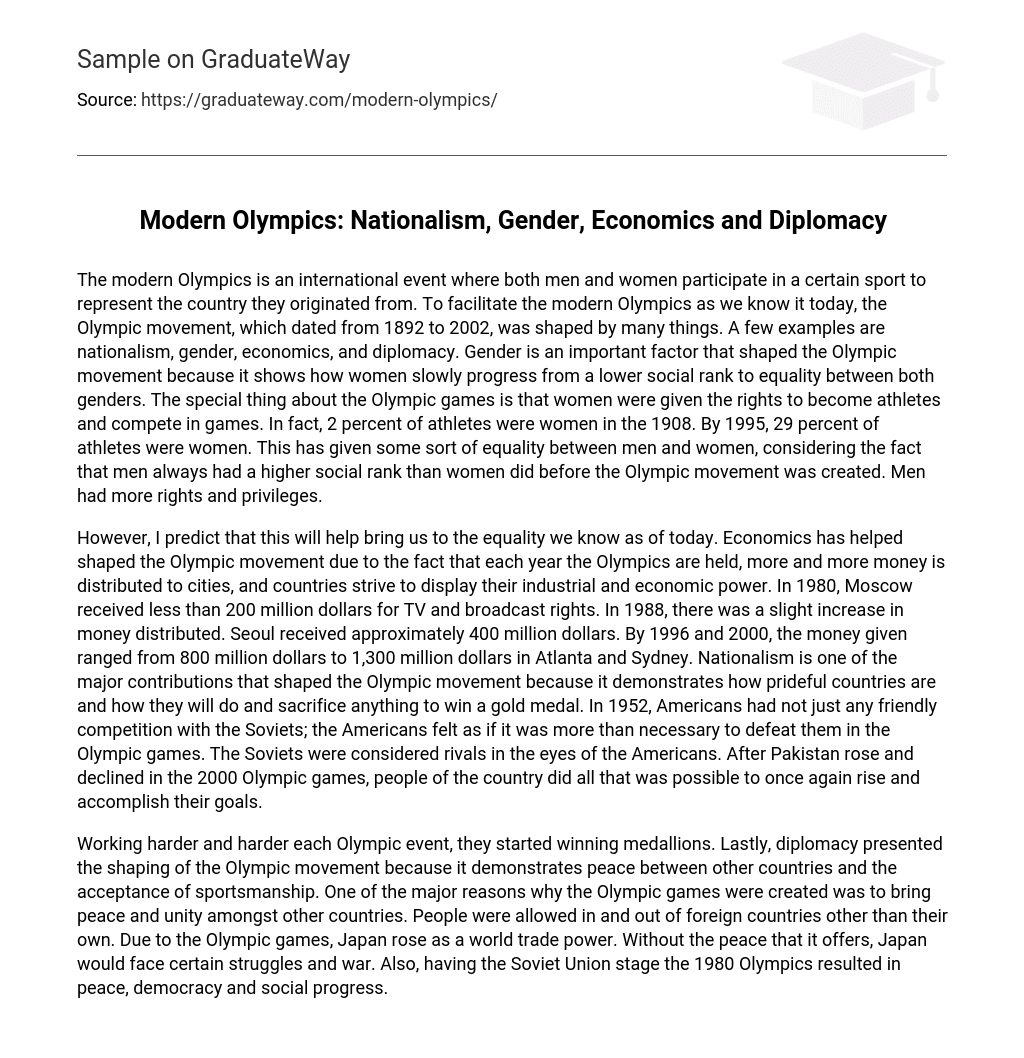The modern Olympics is an international event where both men and women participate in a certain sport to represent the country they originated from. To facilitate the modern Olympics as we know it today, the Olympic movement, which dated from 1892 to 2002, was shaped by many things. A few examples are nationalism, gender, economics, and diplomacy. Gender is an important factor that shaped the Olympic movement because it shows how women slowly progress from a lower social rank to equality between both genders. The special thing about the Olympic games is that women were given the rights to become athletes and compete in games. In fact, 2 percent of athletes were women in the 1908. By 1995, 29 percent of athletes were women. This has given some sort of equality between men and women, considering the fact that men always had a higher social rank than women did before the Olympic movement was created. Men had more rights and privileges.
However, I predict that this will help bring us to the equality we know as of today. Economics has helped shaped the Olympic movement due to the fact that each year the Olympics are held, more and more money is distributed to cities, and countries strive to display their industrial and economic power. In 1980, Moscow received less than 200 million dollars for TV and broadcast rights. In 1988, there was a slight increase in money distributed. Seoul received approximately 400 million dollars. By 1996 and 2000, the money given ranged from 800 million dollars to 1,300 million dollars in Atlanta and Sydney. Nationalism is one of the major contributions that shaped the Olympic movement because it demonstrates how prideful countries are and how they will do and sacrifice anything to win a gold medal. In 1952, Americans had not just any friendly competition with the Soviets; the Americans felt as if it was more than necessary to defeat them in the Olympic games. The Soviets were considered rivals in the eyes of the Americans. After Pakistan rose and declined in the 2000 Olympic games, people of the country did all that was possible to once again rise and accomplish their goals.
Working harder and harder each Olympic event, they started winning medallions. Lastly, diplomacy presented the shaping of the Olympic movement because it demonstrates peace between other countries and the acceptance of sportsmanship. One of the major reasons why the Olympic games were created was to bring peace and unity amongst other countries. People were allowed in and out of foreign countries other than their own. Due to the Olympic games, Japan rose as a world trade power. Without the peace that it offers, Japan would face certain struggles and war. Also, having the Soviet Union stage the 1980 Olympics resulted in peace, democracy and social progress.





